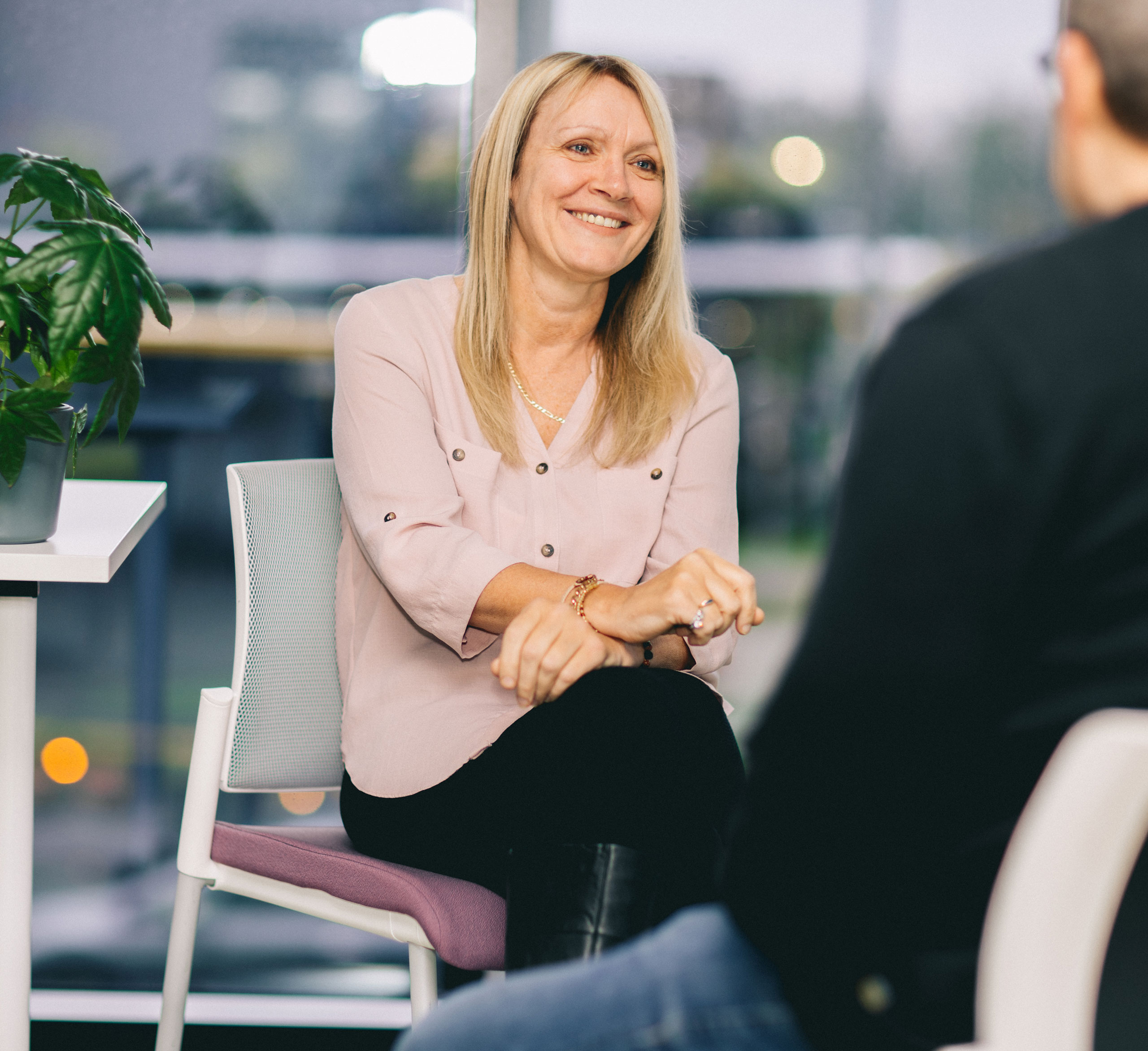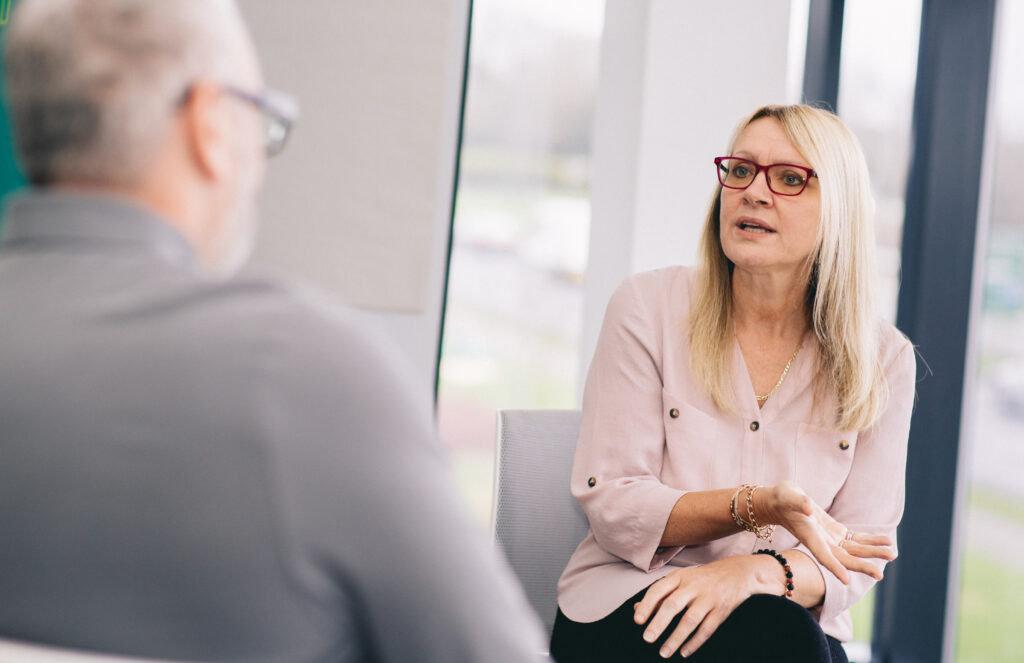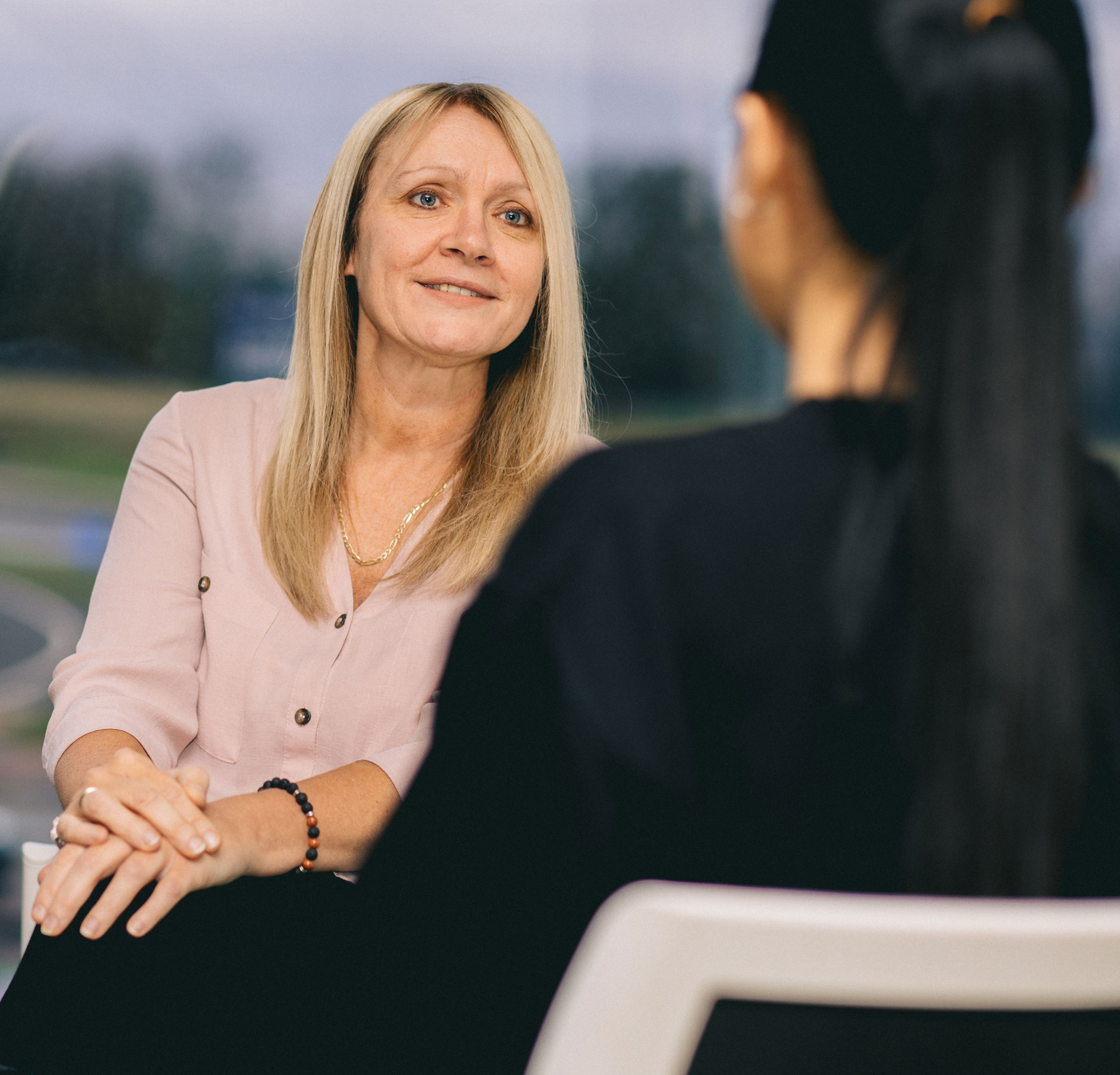
Couples counsellor and
Supervisor in the Chesterfield and surrounding areas






About Andrea Emmerson: Counsellor
Thank you for taking the time to visit my website.
My name is Andrea, I am a fully qualified adult, couple counsellor, and a counselling supervisor. I am a accredited member of the National Counselling and Psychotherapy Society (NCPS). My comfortable clean office is easily accessible located near Chesterfield town centre with space for parking for your convenience.
I studied at the Worksop College and since qualifying over 15 years ago I have gained a wide range of valuable experience and learnt many life skills along the way. Including working with anxiety, depression, trauma, sexual and emotional abuse, self esteem and suicidal thoughts.
I would describe myself as a friendly, genuine talking counsellor without the professional jargon! As an experienced professional I have worked across a wide range of issues and worked with various challenges. I find counselling so rewarding when I see clients start to heal and begin to change their lives in a positive way.
Starting counselling can be a difficult and often frightening experience, once you have the strength to take the next step. You will be welcomed into a safe, warm comfortable space so you can find the courage to begin healing.

Identify
I take a patient, understanding and analytical approach, identifying the triggers for the feelings – which are often very deep-rooted – and is the starting point to recovery.

Time
Everyone is different and counselling should take as long as necessary to help you to deal with their own particular issues so that they can begin to move forward and embrace the future with positivity.
My experience
I spent a number of years as a support counsellor for a local hospice and CRUSE Bereavement Care. Exploring issues of grief and loss in a safe environment, helping clients explore and discuss what they are dealing with, around illness and bereavement.
Having worked with Sexual abuse, sexual assault and rape survivors over the years. I offer a trauma informed approach to help gain an understanding of yourself, help you develop positive ways of coping. focusing initially on stabilisation and emotional regulation before moving on to safely processing your thoughts and feelings in a safe comfortable space.
Past Experience
Fully qualified
Two way process
Bereavement
Suicide Awareness
Volunteered
Issues
Qualifications

Dip HE Counselling Practice

ITA – 101 (Institute of Transactional Analysis)

Dip Couns. Suicide

Adult Education & Teaching Award

Post Graduate Diploma in Person-Centred Supervision

Post Graduate Certificate in Person-Centred Couples Training

Diploma in Couple Counselling skills and Techniques

Diploma in Trauma The Brain and Recovery




My Approach
I work in a Person-Centered approach, which was devised by Carl Rogers, an American psychologist. Counselling is a personal growth model. It has three core conditions which provides a climate encouraging clients growth and therapeutic change. It relies on the importance of the counsellor client relationship. Given the right relationship of empathy, honesty and without judgement clients can decide what they want to do with their lives and learn to trust their own judgement living life with their own values rather than the value of others.

Identify
I take a patient, understanding and analytical approach, identifying the triggers for the feelings – which are often very deep-rooted – and is the starting point to recovery.

Time
Everyone is different and counselling should take as long as necessary to help you to deal with their own particular issues so that they can begin to move forward and embrace the future with positivity.
What you can expect from my counselling
At your first appointment we can discuss what you would like to talk about. Some people are clear at the start with what they are looking for and others need a few sessions to think it through. Either way is fine.
If your therapy is being funded, then a certain number of sessions may be confirmed and we will work together within that time frame.
If you are self-funding, this is called open-ended therapy where we do not decide on an end date. The therapy will be ongoing, incorporating review sessions along the way.
I will ask some general questions about you and if you have any concerns or questions, this is a good opportunity to discuss these too. We can then arrange a suitable time at the end of each session to accommodate peoples individual lifestyles.

My fee is One to One £60 per 60 mins.
Couples £75.00 per 60 mins.
Weekday, weekend and evening appointments available.
Parking is available.
If you think counselling sounds right for you, please feel free to get in touch to learn more or arrange an appointment.




Supervision
“I am most impressed with the fact that each human being has a directional tendency toward wholeness, toward actualisation of his or her potentialities.....if I can provide the conditions that allow growth to occur, then this positive directional tendency brings about constructive results”
Carl Rogers, A Way of Being
I am a qualified Supervisor. I offer supervisees a warm and encouraging environment based on a relationship of trust and transparency.
Supervision is a necessary important part of the process in a counsellor’s professional development, ethical practice, self-reflection, client welfare, accountability, and continuous learning. I will support counsellors whether newly qualified or in training and provide competent, ethical, and effective care to their clients while also promoting your own well-being and growth to find your own professional counselling identity.
I offer supervisees a warm and encouraging environment based on a relationship of trust and transparency. I would describe myself as an approachable, honest professional who is not frightened to challenge to help you develop. I am a Person Centered Supervisor however I am open and encourage engaging with other models.
Our first session would be an opportunity to ask questions, get to know each other and feel comfortable working with each other. We can discuss any expectations and concerns you may have regarding supervision.
Please get in touch to discuss your interest in supervision and arrange a meet and greet.
Ethics
Membership Association
I’m a accredited member of the NCPS (National Counselling & Psychotherapy Society) and I’m guided and work by their code of ethics.
The Code of Ethics is a guidance document that focuses on core ethical principles and standards that NCPS registered counsellors should aspire to in order to practise safely and ethically, in the best interests of clients, their wellbeing, and the profession.
Confidentiality
I may share any information you have given to me if I consider that you are at risk of imminent serious harm, another person has been harmed or may be at risk of harm, or I suspect that serious criminal offences have taken, or may be taking place, such as acts of terrorism and drug money laundering.
Data Protection
I am registered with the ICO (Information Commissioner’s Office) and manage all of my practice in compliance with General Data Protection Regulations (2018).
Insurance
I maintain Professional Liability Insurance with Holistic Insurance Services.
Common Questions
If you’re considering counselling, it’s natural to have questions. You might be wondering what to expect from your sessions, how the process works, or whether counselling is the right choice for you. This section is designed to provide clear and helpful answers to the most common questions people have when reaching out for support.
I understand that taking the first step towards counselling can feel daunting and having the right information can make all the difference. Whether you're curious about how sessions are structured, confidentiality, or practical details such as fees and availability, you’ll find the answers here.
To explore a question, simply click on the downward arrow, and the box opposite will expand with more information. This way, you can find exactly what you need without having to scroll through lots of text.
If you can’t find the answer you’re looking for, please don’t hesitate to get in touch. Every person’s situation is unique, and I am always happy to provide further information or reassurance. Counselling is about feeling safe, heard and supported - so whatever’s on your mind, I am here to help.
- Attaining a better understanding of yourself, your goals and values
- Developing skills for improving your relationships
- Finding resolution to the issues or concerns that led you to seek counselling
- Learning new ways to cope with stress and anxiety
- Managing anger, grief, depression, and other emotional pressures
- Improving communications and listening skills
- Changing old behaviour patterns and developing new ones
- Discovering new ways to solve problems
- Improving your self-esteem and boosting self-confidence
A Safe and Supportive Space for You...
Life can feel overwhelming at times. Whether you’re facing stress, anxiety, low mood or simply struggling to make sense of things, it’s important to know that you don’t have to go through it alone. Here, you will find a calm, welcoming space where you can take a breath, feel heard and start to work through whatever is on your mind.
From the moment you walk through the door, you’ll be met with warmth and understanding. The space has been designed to be comfortable, quiet and completely free of judgment – somewhere you can talk openly, at your own pace, about whatever is weighing you down. There’s no pressure, no expectations – just a listening ear and genuine support tailored to you.
Counselling is about more than simply talking; it’s about feeling safe enough to explore your thoughts and emotions, knowing that someone is truly listening and guiding you with care. Each session is shaped around what you need, helping you to untangle your thoughts, build resilience and gain clarity.
No matter where you are in life or what you’re going through, this is a space where you can pause, reflect and begin to move forward. When you’re ready, I am here to listen. Take that first step towards feeling lighter, stronger and more in control. You deserve the support you need.
Would you like to talk?
Reaching out for support can feel like a big step, but you don’t have to face things alone. If you're struggling or just need someone to talk to, completing this simple form is the first step towards getting the help you need. There’s no pressure or commitment - just a safe, understanding space where you can be heard.
Please fill in your details, send a message and I will be in touch to talk through how I can help. You’re not alone, and support is only a message away.
Accredited


